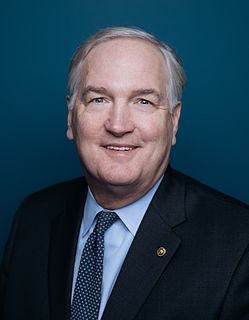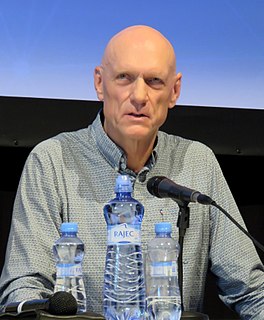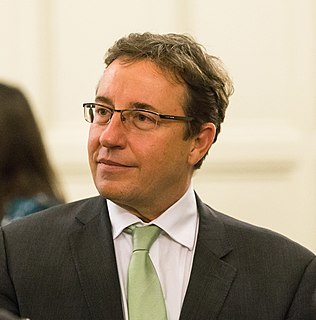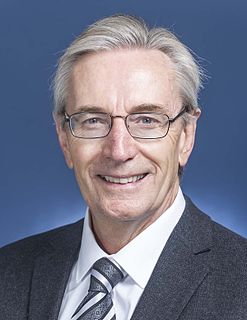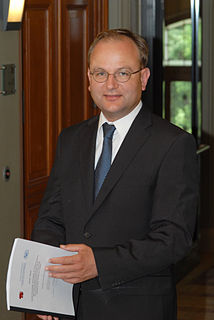A Quote by Luther Strange
Debate about the causes and consequences of climate change and the policy positions taken in response to it should be encouraged, not silenced.
Related Quotes
Despite the international scientific community's consensus on climate change, a small number of critics continue to deny that climate change exists or that humans are causing it. Widely known as climate change "skeptics" or "deniers," these individuals are generally not climate scientists and do not debate the science with the climate scientists.
But no matter how big the effort to push a propaganda line might be, climate change is bigger. This, undoubtedly and regrettably, is the biggest immediate long-term environmental challenge we face. A failure to concretely come to some policy outcome on climate change has not only a negative environmental impact but also social and economic consequences for us.
The left is entering a new phase of ideological agitation no longer trying to win the debate but stopping debate altogether, banishing from public discourse any and all opposition. The proper word for that attitude is totalitarian. It declares certain controversies over and visits serious consequences from social ostracism to vocational defenestration upon those who refuse to be silenced.
Sensible policies on global warming should weight the costs of slowing climate change against the benefits of slower climate change. Ironically, recent policy initiatives, such as the Kyoto Protocol of 1997, have been introduced without any attempt to link the emissions controls with the benefits of the lower emissions.
Now it is the least developed world who are not responsible for this climate change phenomenon that bore the brunt of climate change consequences so it is morally and politically correct that the developed world who made this climate change be responsible by providing financial support and technological support to these people.
With Climate Change as a Security Risk, WBGU has compiled a flagship report on an issue that quite rightly is rising rapidly up the international political agenda. The authors pull no punches on the likelihood of increasing tensions and conflicts in a climatically constrained world and spotlight places where possible conflicts may flare up in the 21st century unless climate change is checked. The report makes it clear that climate policy is preventative security policy.
I do remain optimistic that one day the world will realise that carbon dioxide is more of a friend than an enemy to the earth's flora and fauna, and I do seriously believe that, given the extraordinary complexity of the natural forces controlling our climate, which have done so for millions of years, the only sensible policy response to the natural process of climate change is prudent and cost-effective adaptation.
First of all, developed countries have basically expropriated the atmosphere of the world community. But one must say clearly that we redistribute de facto the world's wealth by climate policy. Obviously, the owners of coal and oil will not be enthusiastic about this. One has to free oneself from the illusion that international climate policy is environmental policy. This has almost nothing to do with environmental policy anymore.
